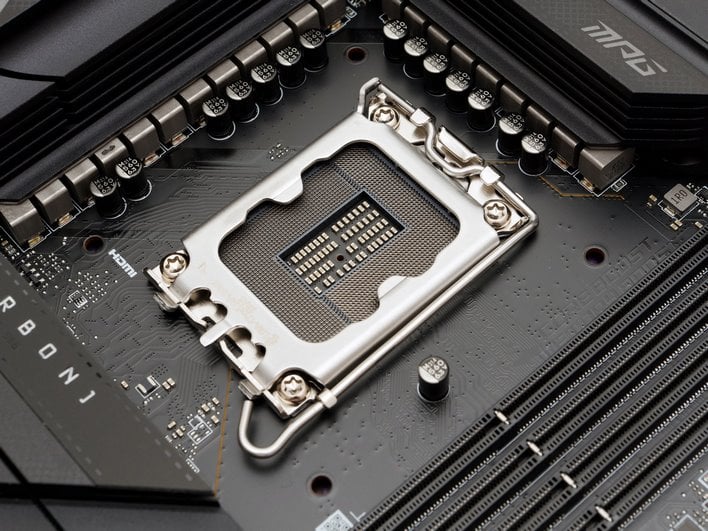Intel Core i9-13900KS Review: First To 6GHz, Fastest CPU Yet
Intel Core i9-13900KS: CPU, System, And Browser Benchmarks
When the Windows installation was complete, we installed all of the drivers necessary for our components, disabled Auto-Updating and Windows Defender, and installed all of our benchmarking software. When that process was done, we performed a disk clean-up, cleared any temp and prefetch data, processed idle tasks, and optimized all of the SSDs using Windows' built-in utility. Finally, we enabled Windows Focus Assist to minimize any potential interruptions and let the systems reach an idle state before invoking any tests.
HotHardware's Test Systems:
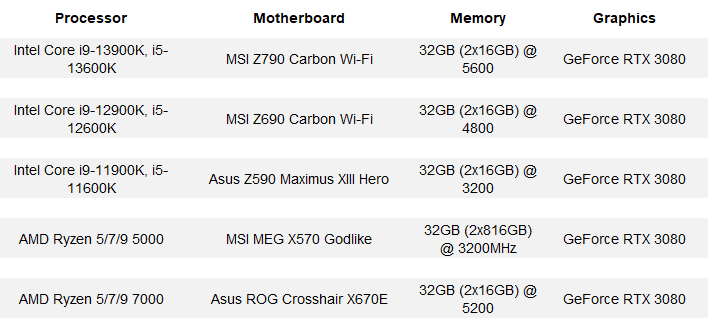
AIDA64 Memory Bandwidth, Memory Latency & Cache Latency
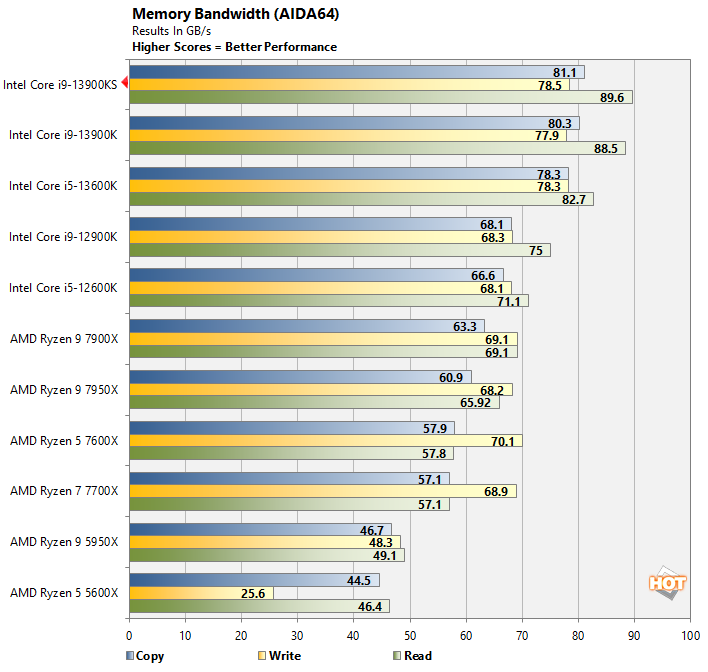
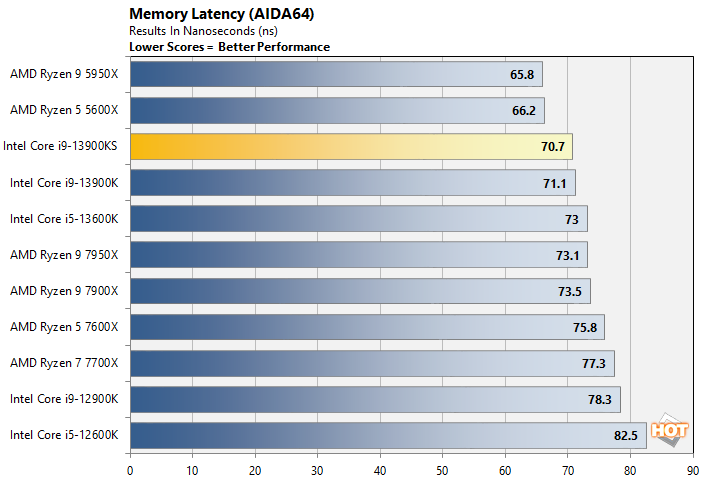
While DDR5's higher clocks results in more memory bandwidth versus previous-gen offerings, the higher CAS latency of current DDR5 memory kits also results in increased memory latency versus the DDR4-equipped Ryzen 5000 series and 11th Gen Core processors. Their support for higher memory frequency does, however, allow the 13th Gen Core processors to put up better memory latency results than AMD's Ryzen 7000 series or 12th Gen processors.
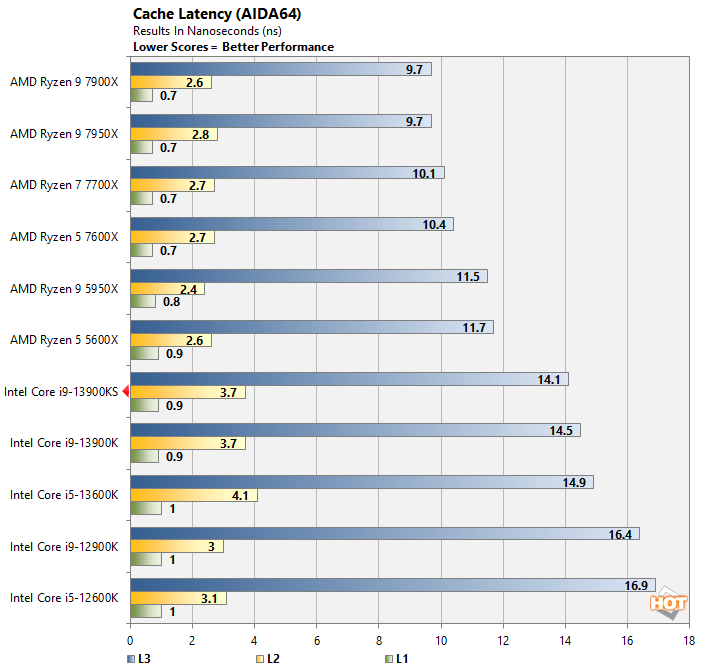
Geekbench v5.4.1 CPU Benchmark With Raptor Lake
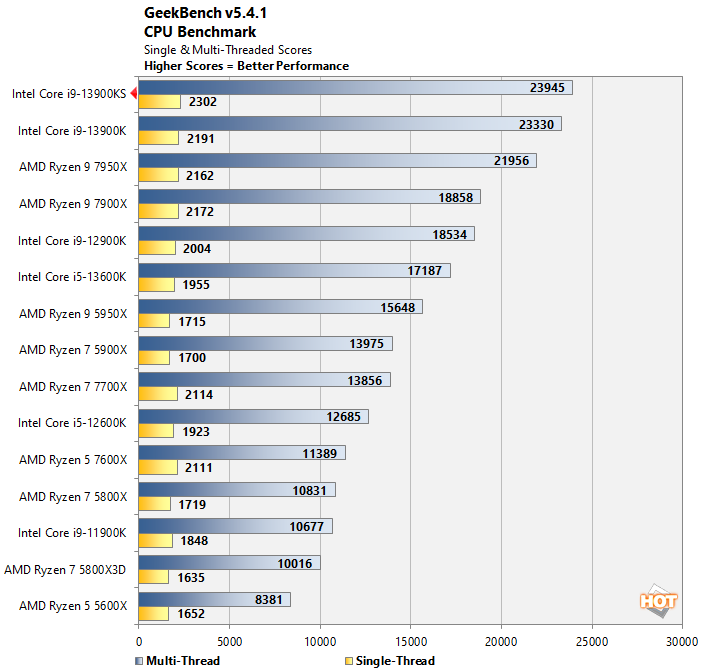
We don't want to spoil things for you so early, but you're going to notice a common theme throughout all of our benchmarks here. In Geekbench, the Core i9-13900KS put up the best single and multi-threaded scores we have seen to date. Its higher clocks allow it to edge out the existing 13900K by a couple of percentage points, putting it in the pole position in this benchmark.
UL PCMark 10 Benchmarks
Next, up we have some full-system testing with PCMark. We're reporting all test results from the PCMark 10 benchmark suite, including the Essentials, Productivity, Digital Content Creation and and total PCMark score. The Essentials test covers workloads like web browsing, video conferencing and app start-up times, while Productivity tests everyday office apps from spreadsheets to word processing. Finally, the Digital Content Creation test evaluates performance of a machine with respect to photo and video editing, as well as rendering and visualization.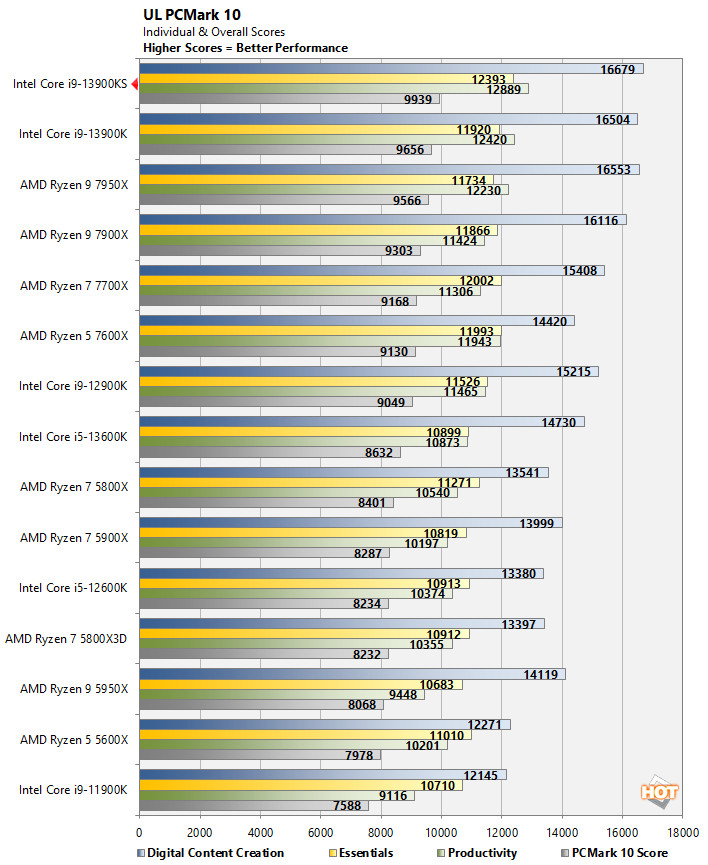
PCMark 10's mixed workloads also ran well on the Core i9-13900KS. Here, Intel's newest limited edition flagship edged out all of the other processors we tested once again, resulting in the highest score we've seen from a desktop system to date.
Bapco Crossmark Testing
Crossmark is a new cross-platform benchmark from Bapco that's available for Windows, Android, iOS and MacOS. Like PCMark, Crossmark measures overall system performance and using real-world applications. It characterizes system responsiveness as well, based on the results of its Creativity and Productivity benchmarks.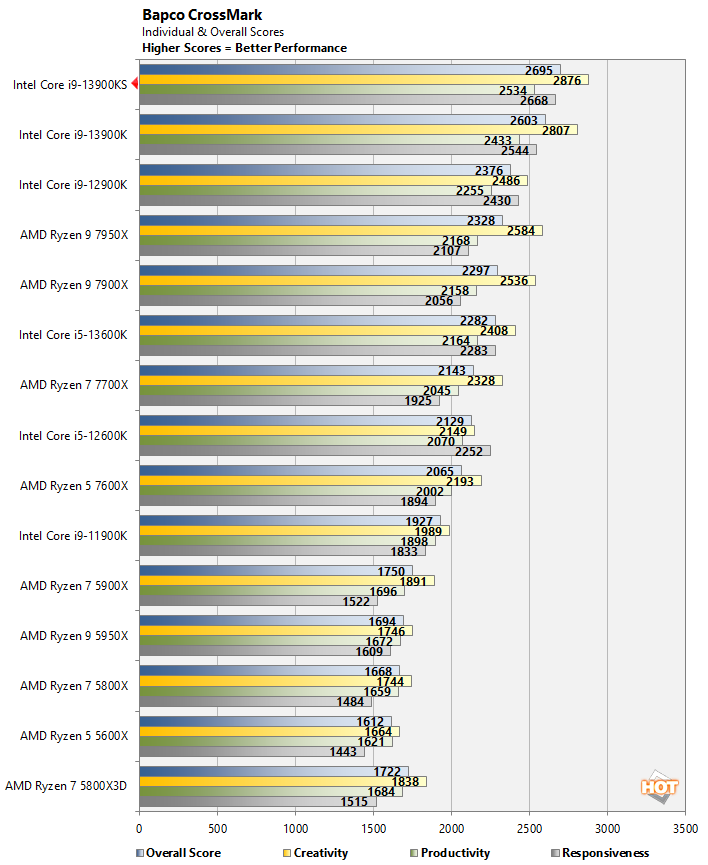
Bapco's Crossmark tells essentially the same story as PCMark 10. The Core i9-13900KS takes the lead over every other processor we tested yet again.
Browser & Web App Benchmarks: Jetstream 2 And Speedometer 2
These benchmarks measure performance of an array of browser-based technologies used on modern, rich web applications. Scores in these benchmark are an indicator of the performance users would see when browsing the web and running advanced web apps. All of the systems were tested using the latest version of Microsoft's Edge browser, with default browser settings, on a clean, fully-updated install of Windows 11.
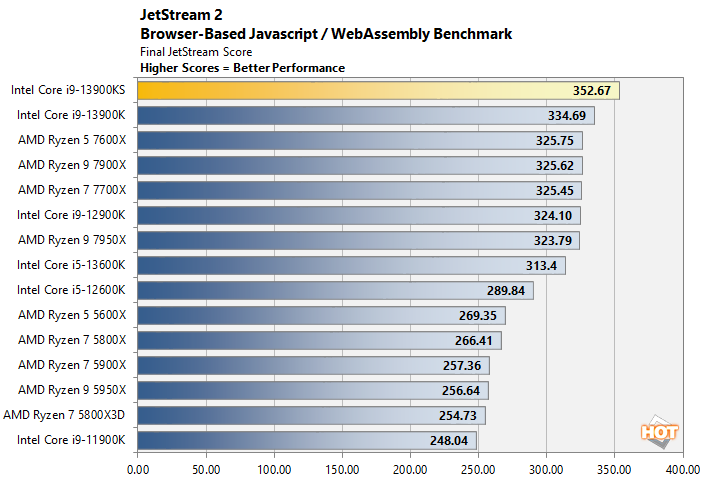
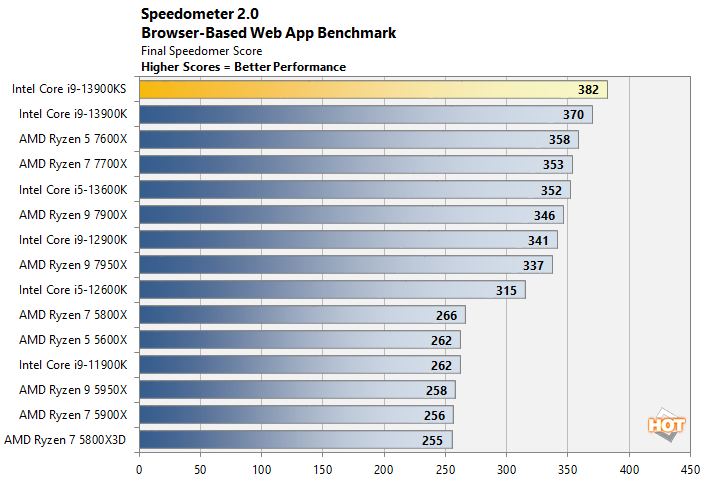
7-Zip Data Decompression Tests
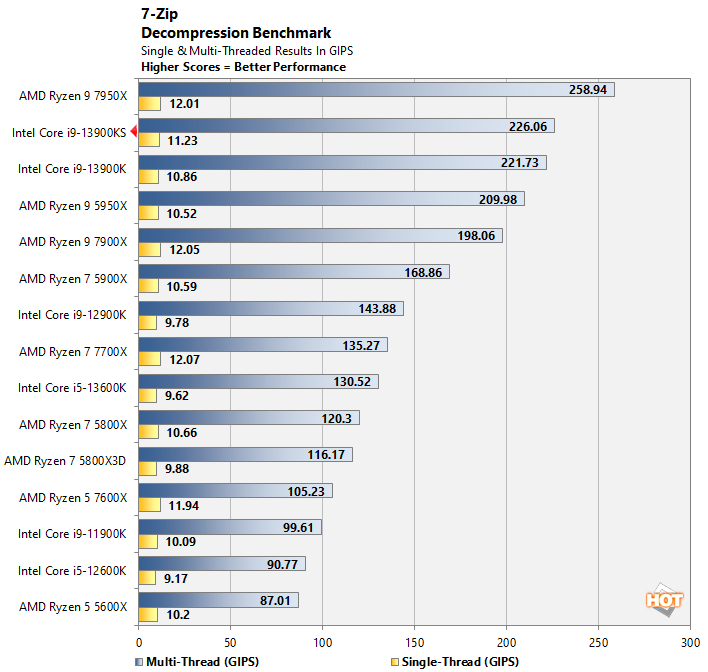
Although the Core i9-13900KS was able to overtake the Core i9-13900K yet again, in both the single and multi-threaded tests, the Zen 4-based AMD Ryzen 9 7950X takes the lead in 7-Zip's decompression tests.

